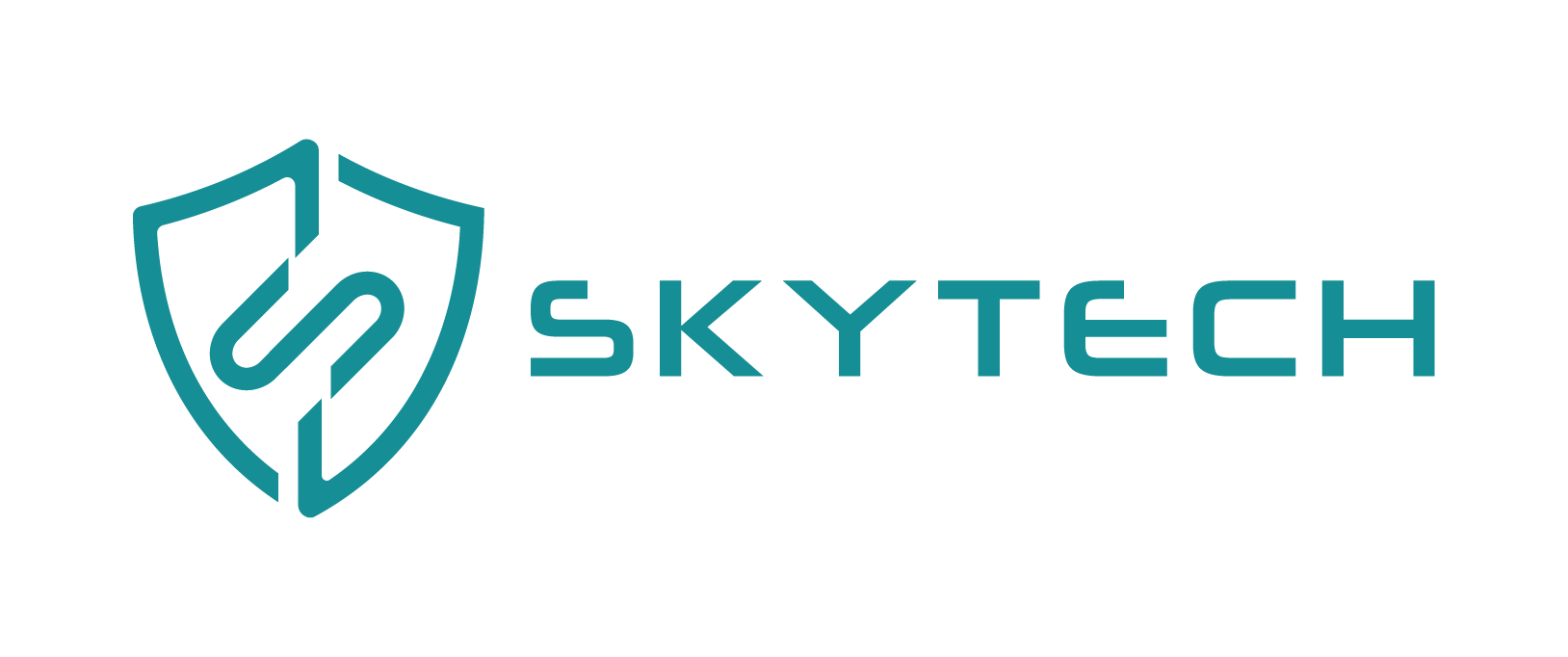
Best Practices for Strengthening Cloud Security in Large Enterprises
As more large enterprises migrate their operations to the cloud, they are increasingly faced with a challenge of maintaining robust cloud security. When highly sensitive data is stored the cloud and processed online, it needs protection from cyber threats. The stakes are higher for large companies as their IT infrastructures are much more complex, making them susceptible thus making their impact of their attack greater. To help navigate these challenges, here are some of the best practices for strengthening cloud security in large enterprises with specific focus on services provided by cyber security companies in Dubai.
1. Understand shared responsibility in Cloud Security
One of the foundational aspects of cloud security is understanding the shared responsibility model. The distributed security responsibilities between the cloud service provider (CSP) and the client is called the shared responsibility model. For instance, CSP is responsible for securing the physical infrastructure while the enterprise is responsible for securing the data, applications and user access.
Failure to recognize this distinction creates gaps in security. Businesses must clearly define boundaries of their own responsibility and ensure that their security measures should align with these responsibilities. By partnering with a cyber security company in Dubai, businesses will be in a better position to define and manage these boundaries effectively so that both parties can fulfil their roles.
2. Have a Strong Identity and Access Management (IAM)
Identity and Access Management (IAM) serves as a key factor in determining who gets access to cloud resources. Large enterprises will have to ensure that only authorized users can access specific services and applications. Some IAM best practices include:
- Multi-Factor Authentication: Users must prove their identity with two or more forms of verification. Thus, it would make the system much more secure; even when passwords get leaked, MFA would prevent the unauthorized access.
- RBAC (Role Based Access Control): Assign permissions based on job role, rather than individuals. This makes access easier to manage and only gives users the information needed to get a job done.
- SSO (Single Sign On): Users can authenticate from one location, or even from multiple applications and systems whilst still maintaining centralized control.
Strong IAM practices create a barrier to unauthorized access and control or at least it helps monitor and control user activities within the cloud.
3. Data Encryption and protection
Data encryption is one of the most fundamental components of cloud security. Enterprises need to encrypt data both in transit and at rest. With encryption, even if unauthorized parties access any data, they won’t be able to read it without decryption keys. Here’s how to implement effective data encryption:
- Encryption in Transit: The enterprise data applied in the cloud must be protected by encryption between the organization’s network and the cloud. For data protection in transmission, the application of HTTPS, or the combination of HTTP with TLS can be used.
- Encryption at Rest: Storing data on a cloud server requires the use of the strong encryption and algorithms. Although some of the encryption services are provided by cloud providers, several organizations must manage their encryption key to have more control.
- Key Management Services (KMS): It is important to properly manage encryption keys to avoid exposure of the encryption keys. Use solutions such as KMS to help store and manage encryption keys securely.
Data encryption introduces more protection to the data and reduces vulnerability in case of data loss.
4. Regular Security Assessments and Audits
Regular monitoring and security assessments detects any vulnerabilities before they can be exploited. Big organization should establish a culture of regularly scanning all their cloud environments to confirm whether all security measures are updated. Key aspects of regular security assessments include:
- Vulnerability Scanning: Regular scans can help in assessing possible vulnerability of configurations and applications in the cloud environment.
- Penetration Testing: Simulate cyberattacks to recognize any vulnerabilities and compliance of tests with security measures.
- Compliance Audits: Most industries have specific regulatory requirements for data protection such as GDPR or HIPAA. With regulatory audits, it ensures compliance with standards are observed at all time and avoids any future legal issues.
Work with a professional cyber security company in Dubai can help you provide expertise in gauging such assessments that will help the businesses from walking into potential threats.
5. Implement Network Security Best Practices
An excellent network is necessary in a secure cloud environment. Strict network security practices must be implemented to avoid unauthorized access to a company’s network and reduce an attack surface. Some key practices are as follows:
- Virtual Private Cloud (VPC): Through the use of VPCs, businesses can build isolated cloud conditions that resemble an on-premise data center. This gives better control over the access and also facilitates data flow.
- Firewall and IDS: Use cloud-native or a third-party firewall to block incoming and outgoing traffic based on security policies. IDS will be responsible for monitoring network traffic for suspicious activities and potential threats.
- Zero Trust Network Architecture: Adopt the security model whereby no user or device is trusted automatically even if they are within the network. Always verify each access request before allowing anything.
These steps aid in data protection within a network besides safeguarding cloud resources against unauthorized access and data exfiltration.
6. Establish Robust Backup and Disaster Recovery Plans
Losing data in a large organisation can be very destructive. An efficient backup and disaster recovery plan will mean that an organization can retrieve data in case of a breach or system failure with little time. Some best practices are:
- Regular Backups: Any critical data created must be stored and backed up frequently and securely, ideally in a different geographic location.
- DRaaS or Disaster Recovery as a Service: Critical workloads need to be duplicated in a DR service that operates in cloud infrastructure to quickly restore after a disaster strikes.
- Testing Disaster Recovery Plans: Test disaster recovery plans are necessary to restore data quickly and accurately. Testing them reveals certain defects in time and ensures readiness in case of a real emergency when it occurs.
A test disaster recovery plan minimizes any impact of data breaches, malware invasions or hardware failure on operations.
7. Empowerment and Enrichment of Employees
Employees are universally the biggest vulnerability for organizations when it comes to cybersecurity. Large organisations must ensure that employees are in fact aware of the risks and should act accordingly with regards to cloud security. Effective training programs should cover the following:
- Phishing Awareness: Train employees to identify phishing and avoid such links or emails.
- Password Management: Stress on the usage of long and different passwords and encourage the use of password managers.
- Incident Reporting: Create a clear process for reporting potential threats and ensuring how to respond to potential threats.
Cyber awareness programs can help employees understand the risks of cyberthreats and put them into the vital line of defense against cyber-related threats.
8. Use Cloud Native Security Solutions
You can elevate the security level much higher by engaging native cloud security tools from the cloud services vendor. These tools are designed to be implemented into the cloud environment where it offers automated features on threat detection, management of encryption and compliance. Some examples of these solutions are AWS Security Hub, Azure Security Centre and Google Cloud Security Command Center. It enhances awareness of the enterprises into the cloud workloads and security policies uniformly. When implemented, businesses can ensure that their security measures are UpToDate with the current dynamics of cloud infrastructure making all the businesses fully prepared for the dynamic changes in cyber threats.
Why Sky Tech Cyber Cloud LLC?
Sky Tech Cyber Cloud LLC is one of the leading cyber security companies in Dubai, that provides customized cloud security solutions for large businesses. With our deep knowledge in the latest advanced cybersecurity technologies and practices, we provide full end-to-end security support in safeguarding cloud environments. Our professionals work closely with businesses to determine their unique needs and implement custom solutions that guarantee robust protection. From initial risk assessment and strategic planning, to ongoing monitoring and incident response, Sky Tech Cyber Cloud LLC is committed to keeping enterprises’ cloud operations secure and compliant with a constantly evolving threat landscape.
Conclusion
The process of securing cloud requires ongoing effort that should be a combination of the advanced tools, strategic planning, and employee awareness. For instance, large enterprises require implementing best practices like IAM, data encryption, network security, and continuous monitoring to protect their cloud environments from evolving threats. Partnering with professional cyber security companies in Dubai, like Sky Tech Cyber Cloud LLC, can help your businesses implement more efforts with specialized knowledge and assistance. By prioritizing cloud security, enterprises can leverage the advantages of cloud computing while safeguarding their most valuable digital assets. Call us at +971 50 7437958 or email us at [email protected] if you have any queries. We will be happy to assist you.
Related Posts
Top Trends in Mobile App Development for 2025
Top Trends in Mobile App Development for 2025 Brief on how mobile apps continue to…
How IT Services Accelerate Digital Transformation in Dubai
How IT Services Accelerate Digital Transformation in Dubai In the fast-moving world of businesses, the…
Odoo Customization & Development – Tailoring ERP for Middle Eastern Markets
Odoo Customization & Development – Tailoring ERP for Middle Eastern Markets Enterprise Resource Planning (ERP)…
The Significance of Multi-Factor Authentication
The Significance of Multi-Factor Authentication Modern digital environments display cyber risks, which prove smarter and…








